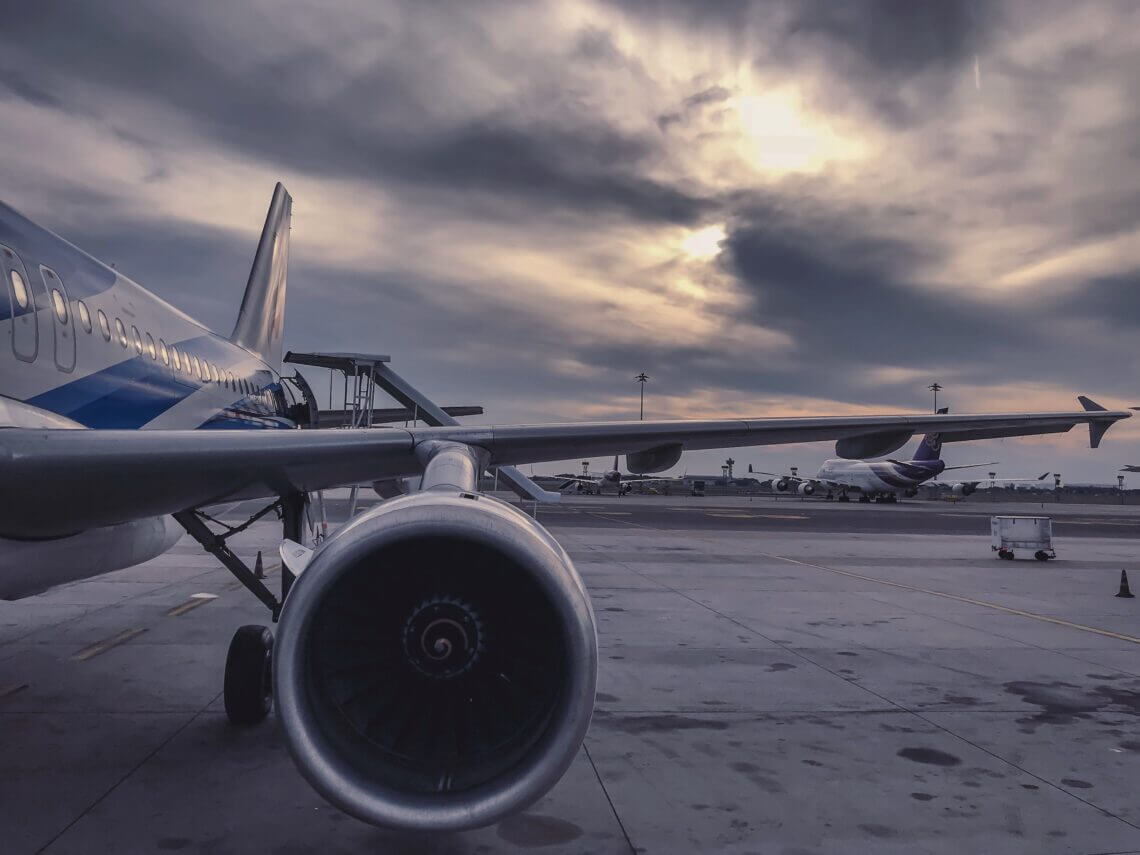
Will sustainable air travel take off?
The aviation industry, which currently contributes to 2.8 per cent of global carbon emissions, has come under scrutiny in recent years for its negative environmental impact. According to the International Civil Aviation Organization (ICAO), a total of 4.4 billion people boarded a plane throughout 2018; this figure is set to rise to nearly 10 billion by 2040. This means that if sustainable solutions are not found, industry emissions will rise exponentially.
Many airlines have invested in carbon offsetting programs and biofuels to offer what are known as eco-flights. These are flights that operate on reduced carbon dioxide levels. A quick search of popular Canadian destinations on SkyScanner—a search engine to compare flight costs—shows that eco-flights offer carbon reductions anywhere from five to 24 per cent. An eco-flight is loosely defined as a flight that reduces its carbon footprint but does not make a distinction on the amount of energy being saved. Tim Gray, the executive director of the advocacy organization Environmental Defence, says the absence of qualifying criteria makes him skeptical about the term.
“I think that there’s ‘less bad’ flights. That’s probably the best way of describing it,” Gray said. “In terms of each person’s carbon emissions, [flying is] one of the most carbon-intensive things you can do.”
Unlike other sectors of environmental change, there is no quick-fix alternative to flying. Electric cars are replacing standard models and renewable energy providers are now available in many parts of Canada to power homes sustainably, but flying has largely remained an all-or-nothing carbon expense.
Several airlines now operate a portion of flights using biofuel, but issues surrounding supply and demand will likely prevent it from becoming a viable long-term option. Biofuel is made from a variety of materials including crops, animal fat and waste, which are converted into fuel that releases a fraction of the carbon that standard fuel does. According to the International Energy Agency, current quantities of biofuel only provide enough energy to power 0.1 per cent of flights, so the land and resources required to make it a sustainable alternative would cause environmental concerns of their own.
David Zingg, a professor of aerodynamics at the University of Toronto, sees biofuels as a positive development in the absence of a more advanced solution. While the electrification of smaller planes is in the works, it will likely be decades before this technology progresses to larger aircrafts. Looking too far ahead may distract from measures that should be taken now, says Zingg.
“If we suddenly had a zero-emissions solution in 2050, I’d be thrilled, but I’d be concerned if we didn’t do anything until then,” he said. “I don’t think we should put all our eggs in one basket. We should keep looking at carbon reduction.”
In an effort to encourage an overall reduction in flying, a movement called flygskam, or ‘flight shame’ began in 2017 when Swedish singer Staffan Lindberg pledged to quit air travel for environmental purposes. The movement was then popularized globally by activist Greta Thunberg when she journeyed from Europe to North America by sea to attend the U.N. Climate Change Summit in New York.
Thinking twice before choosing to fly is an important part of ensuring a more sustainable future for air travel, but it would be unrealistic to halt the industry all together. Suzanne Kearns, a professor of aviation at the University of Waterloo, highlights the importance of the industry to modern society.
“Aviation does a lot of good in the world. There are a lot of parts of the world that depend on tourism that’s facilitated by aviation to keep their communities afloat,” she said. “There are also a lot of jobs that are linked to aviation as well, so it’s all about sustainable development.”
Some remote communities also rely on planes to deliver medical attention and vital supplies. On top of this, the industry plays a leading role in the import and export of goods around the world. To continue its integral role in a globalized community,the flight industry needs to strike a balance between the quality of human life and environmental impact.
“How can aviation be used in a way that optimizes the advantages of air travel while minimizing potential harm?” Kearns asks. “Get [emissions] as low as possible and think about how we’re spending those emissions in a way that’s serving people and society as best we can.”
One area of airfare that may soon become outdated is business travel. Although the ICAO predicted the number of passengers flying will more than double by 2040, this figure did not account for the pandemic. COVID-19 has shown companies worldwide that conducting business virtually is both possible and financially viable. Meetings and events were held almost exclusively online in 2020, saving Gray’s organization, the Environmental Defence, nearly $42,000 last year. The drop in travel expenses gives him confidence that larger corporations will see the profitability in keeping their executives close to home. This could have an impact on the number of flights operating and the overall prices of airfare.
“The prices of tourist travel will go up because the business model of airlines is to subsidize the cheaper economy fares with business travellers who fill up the front of the plane,” Gray said. “The response will be that fewer people will fly because of the higher prices.”
In order to ease the strain of aviation on the environment, Gray recommends using alternate means of travel where possible and taking vacations closer to home. For the time being, eco-flights are a passenger’s best option, should they choose to fly. However, they still produce more carbon emissions than any other type of transportation and Gray remains cautious on what an eco-flight really means.
“The word ‘eco-friendly’ is sort of like ‘natural’ on a food label at a supermarket,” he said. “Anytime you get on a jet and fly somewhere, you can’t think of it as an eco-friendly experience. The best you can hope for is less bad.”
About the author
Dana Hall is the previous contributing editor and journalist for Youth Mind and the Newcomer. She enjoys climbing mountains and talking to her plants. Every once in a while, she tries an olive in hopes that she’s developed a taste for them.






